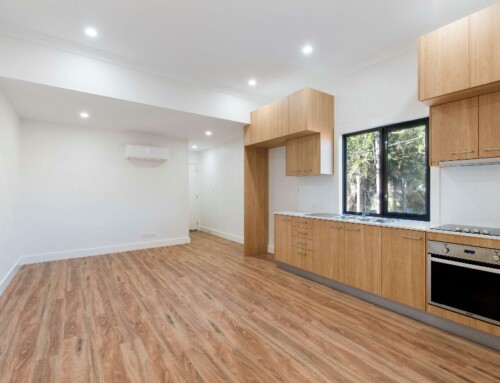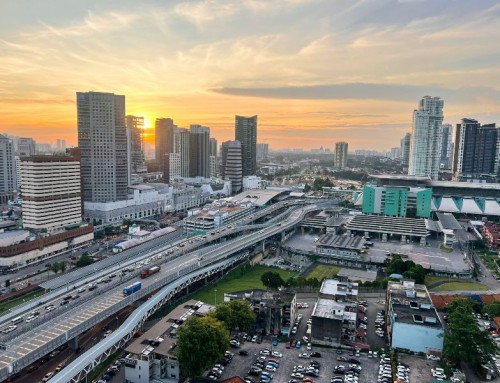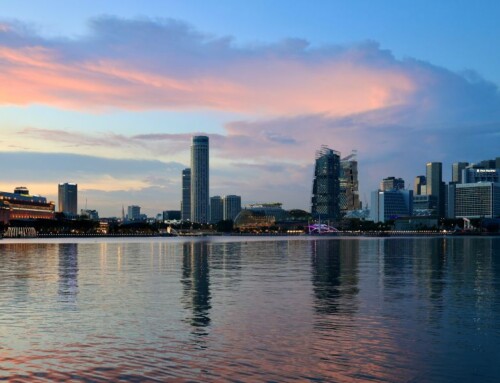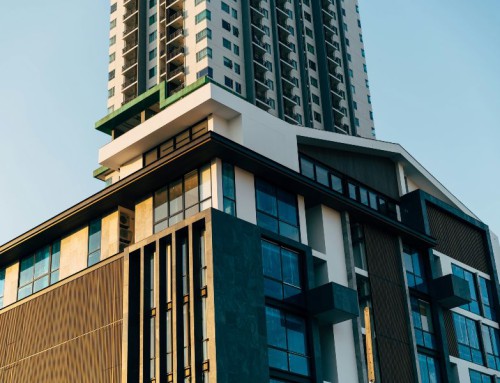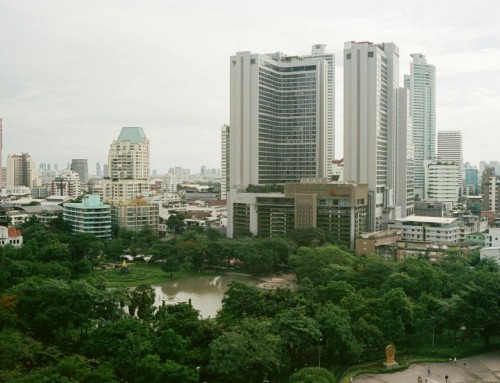Owning an overseas property can be daunting. Especially if you are unaware of legal and tax issues. This makes property investment in that particular country a little less secure. Knowing your legal rights and costs of owning the property can help investors make a more informed decision. Here is a guide to legal and tax issues for Thailand property.
Purchase of Freehold versus Leasehold properties in Thailand
Foreigners are generally prohibited from owning land in Thailand. Foreigners are allowed to own condominium units in Thailand, subject to the foreign ownership of the condominium not exceeding 49% of the aggregate unit space in that condominium. 51 % of the aggregate unit space must be sold and owned by Thai nationals but these can be leased to foreigners on a leasehold basis.
Under Thai law, a lease period of more than 3 years must be made in writing and registered with the land department. The maximum period of lease is limited to 30 years. This registered lease remains in full force and effect even if there is a change in ownership of the property. This means that if a foreigner signs a 30-year lease with a Thai national to lease his property, his lease will still continue even if the Thai national sells his property to another person. The Thai national has to sell the property with the attached tenancy.
Once the lease of 30 years has expired, it can be renewed for a maximum of another 30 years.
Taxes and other liabilities
For the lease of property
Both legal entities, i.e. a company, and individuals are levied the same rates for registration of rent.
Registration fee: 1% of the total rent payable throughout the lease term
Stamp duty: 0.1% of the total rental throughout the lease term
For the sale of property
Rates for legal entities
Registration fee: 2% of the appraised value. Both the seller and buyer are equally responsible. They will usually pay 1% each.
Withholding Tax (Personal Income Tax): 1% of the registered sale price or appraised value (whichever is higher).
Specific Business Tax (SBT): 3.3% of the registered sale price or appraised value (whichever is higher).
Stamp Duty: Not applicable.
Rates for individuals
Registration fee: 2% of the appraised value. Both the seller and buyer are equally responsible. They will usually pay 1% each.
Withholding Tax (Personal Income Tax): Calculated at a progressive rate based on the appraised value.
Specific Business Tax (SBT): 3.3% of the registered sale price or appraised value (whichever is higher). This is exempt for individuals who have held the property for more than 5 years or obtained the property by way of inheritance
Stamp Duty: 0.5% of the registered sale price or appraised value (whichever is higher).
Personal Income Tax Table
(To be used for calculating Withholding Tax when selling property)
| Income (Baht) | Tax Rates | Cumulative Tax | |
| From | Up to | ||
| 0 | 150,000 | 0% | 0 |
| 150,001 | 300,000 | 5% | 7,500 |
| 300,001 | 500,000 | 10% | 27,500 |
| 500,001 | 750,000 | 15% | 65,000 |
| 750,001 | 1,000,000 | 20% | 115,000 |
| 1,000,001 | 2,000,000 | 25% | 365,000 |
| 2,000,001 | 5,000,000 | 30% | 1,265,000 |
| 5,000,001 | and above | 35% | not applicable |
Deductible Expense
(To be used when selling property)
| Number of years property is held | Expenses as a percentage of price |
| 1 | 92% |
| 2 | 84% |
| 3 | 77% |
| 4 | 71% |
| 5 | 65% |
| 6 | 60% |
| 7 | 55% |
| 8 or more | 50% |
An example of how to calculate withholding tax for an individual seller.
Property is sold after 2 years and has an appraised value of THB 3,000,000
Deduction of expenses based on the number of years the property is held
84% of THB 3,000,000 = THB 2,520,000
THB 3,000,000 – THB 2,520,000 = THB 480,000
Divide it by the number of years held
THB 480,000 / 2 years = THB 240,000
Calculate the tax rate based on personal income tax rate
First THB 150,000 is tax-free, next THB 90,000 is taxed at 5%
150,000 x 0%
90,000 x 5% = THB 4,500
Multiply by the number of years the property is held
THB 4,500 x 2 = THB 9,000
Thus, the withholding tax to be paid is THB 9,000
Property Taxes in Thailand
House and Land Tax Act (1932) applies to buildings used for commercial purposes.
The current tax rate is at 12.5% of the annual rent value or the annual assessed rent value, whichever is higher.
Local Maintenance Tax Act (1965) applies to buildings used for residential purposes.
(This rate is for properties in Bangkok)
Properties with a total area less than 100 square Wah (400 square metres or 4,305 square feet) are exempt from taxes.
Properties with a total area of more than 100 square Wah are levied a standard price set by a committee appointed by the Governor of Bangkok.
A typical one bedroom condominium in Bangkok is about 35 square meters, not even a tenth of 100 square Wah. Thus, almost all condominium units are exempt from this local maintenance tax.
Inheritance Taxes in Thailand
Thailand’s Inheritance Tax Act was passed in February 2016.
If a property is transferred before the owner passes away, the property may be subject to gift tax.
Individuals, Thai juristic persons or foreign juristic persons are liable for Inheritance tax.
Individuals are defined as:
- A Thai national
- A foreigner whose residence is in Thailand (This applies to all inheritance regardless of where the inheritance is situated.
- A foreigner receiving property located in Thailand.
Thai juristic persons are defined as
- An entity registered in Thailand.
- An entity established under Thai law.
- An entity having more than 50% of the registered capital held by Thai nationals when inheriting the inheritance.
- An entity that has a majority of Thai nationals on its board of directors
Foreign juristic persons are defined as
- an entity receiving property located in Thailand as an inheritance.
Inheritance tax is levied on an inheritance valued more than THB 100 million. The tax is only levied on the amount above THB 100 million. Any inheritance less than THB 100 million is not subject to inheritance tax. The inheritance is taken as a total value of the whole inheritance and not on the assets individually. For example, if an individual inherits 20 condominiums valued at THB 10 million each, the total value will be THB 200 million and inheritance tax will be levied. For investors with a few condominium units, the total value of these properties more often than not will never cross THB 100 million. Thus for most property investors, inheritance tax is not applicable.
The inheritance tax rate:
- 10% of the total value of the inheritance, for inheritor who is not a descendant or ascendant.
- 5% of the total value of the inheritance, for inheritor who is a descendant or ascendant.
For example:
If an individual inherits property with total value THB 500 million and has a debt of THB 150 million, his total value of the inheritance will be THB 350 million.
The inheritance tax will only be levied on THB 350 million – THB 100 million = THB 250 million.
If the individual is not a descendant or ascendant, 10% of THB 250 million = THB 25 million.
If the individual is a descendant or ascendant, 5% of THB 250 million = THB 12.5 million.
Visa for foreign investors who invest at least THB 10 million in Thailand
The visa is a 1-year permit to stay in Thailand. The permit is renewable.
Conditions for the visa:
- Non-immigrant visa (non-IM)
- Transfer of funds of at least THB 10 million baht transfer into to Thailand
- Purchase or rent a condominium unit for a period of at least 3 years. The purchase or rental price must be at least THB 10 million; or
- Place at least THB 10 million baht into a fixed deposit. The fixed deposit must be with a bank that is registered in Thailand and the bank must have Thai nationals holding more than 50% of their shares; or
- Invest in government or state bonds of more than THB 100 million; or
- A combination of all of the above with the total value of investment crossing THB 100 million.
Documents required:
- Complete the application form
- Personal identification. i.e. passport
- Evidence of funds transfer into Thailand
- Condominium purchase agreement and other related supporting documents; or
- Evidence of fixed deposit; or
- Evidence of bond certificate; or
- A combination of the above
Property taxes are relatively low compared to many major cities. There is no capital gains tax, the withholding tax is relatively low, the annual property tax for residential properties is relatively low, the inheritance tax does not apply to the majority of property investors and it is relatively easy to obtain the renewable one-year visa for investors who purchase property of more than THB 10 million. For these reasons, I personally see Bangkok as a very friendly property investment destination.
Yours Sincerely,
Here are some of my other articles about investing in Thailand, namely Bangkok.
Thailand Property Market Outlook for 2018
Buying property in Bangkok: Payment procedures
The good locations for property investment in Bangkok.
How to get a Retirement Visa in Thailand
Thailand as a retirement destination
My personal experience purchasing a property in Bangkok
A compelling case to invest in Bangkok
Guide to buying a property in Thailand
For investing in Bangkok property, visit investbangkokproperty.com

